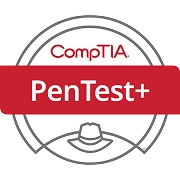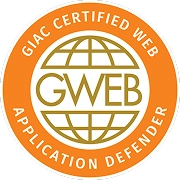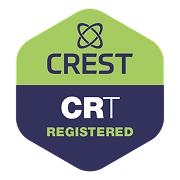
Certified AppSec Pentester
(CAPen)
Certified AppSec Pentester (CAPen) is an intermediate-level exam to test a candidate’s knowledge on the core concepts involving application security. Candidates must be able to demonstrate practical knowledge to conduct an application pentest to pass this exam.
Note: The CAPen exam is also listed in the preferred pathway for SynAck’s SRT criteria.
- Practical
- 4 Hours
- Online
- On-demand
- Real world pentesting scenarios
£250.00
£62.50
Equivalent Industry Certifications*
*Note: We are not affiliated with any of the certifications mentioned here. These are respected industry certifications, and referenced here to show how our Certified AppSec Pentester (CAPen) exam’s syllabus/difficulty overlaps with these exams.
If you already hold any of these, you’re likely well-prepared to test your knowledge with our exam. If you’re preparing for one, our exam is a great way to test your progress.
Our Candidates Say it Best
Who should take the exam?
CAPen is intended to be taken by pentesters, application security architects, SOC analysts, red and blue team members and any AppSec enthusiast, who wants to evaluate and advance their knowledge.
What is the format of the exam?
CAPen is an intense 4 hour long practical exam. It requires candidates to solve a number of challenges, identify and exploit various vulnerabilities and obtain flags. The exam can be taken online, anytime (on-demand) and from anywhere. Candidates will need to connect to the exam VPN server to access the vulnerable applications.
What is the pass criteria for the exam?
The pass criteria are as follows:
- Candidates scoring over 60% marks will be deemed to have successfully passed the exam.
- Candidates scoring over 75% marks will be deemed to have passed with merit.
What is the experience needed to take the exam?
This is an intermediate-level exam. Candidates should have prior knowledge and experience of application pentesting. They should have an understanding of common application security related topics such as the OWASP Top 10, commonly identified security misconfigurations, and best security practices. They should be able to demonstrate their practical knowledge on AppSec topics by completing a series of tasks on identifying and exploiting vulnerabilities that have been created in the exam environment to mimic the real world scenarios.
Note: As this is an intermediate-level exam, a minimum of two years of professional pentesting/bug-bounty experience is recommended.
What will the candidates get?
On completing the exam, each candidate will receive:
- A certificate with their pass/fail and merit status.
- The certificate will contain a code/QR link, which can be used by anyone to validate the certificate.
What is the exam retake policy?
Candidates, who fail the exam, are allowed 1 free exam retake within the exam fees.
What are the benefits of this exam?
The certificate will allow candidates to demonstrate their understanding of application security topics. This will help them to advance in their career.
How long is the certificate valid for?
The certificate does not have an expiration date. However, the passing certificate will mention the details of the exam such as the exam version and the date. As the exam is updated over time, candidates should retake the newer version as per their convenience.
Are candidates allowed to use AI tools during the exam?
No, candidates are not allowed to use AI in any way during the exam.
Will you provide any training that can be taken before the exam?
Being an independent certifying authority, we do not provide any training for the exam. Candidates should carefully go over each topic listed in the syllabus and make sure they have adequate understanding, required experience and practical knowledge of these topics. Further, the following independent resources can be utilised to prepare for the exams.
Learning Resources
Exam Syllabus
Google Hacking, Dorking and OSINT Techniques
- Blacklisting
- Whitelisting
Identification and exploitation of OWASP Top 10 Vulnerabilities
XML External Entity Attack
SQL Injection
Cross-Site Request Forgery
Practical Cryptographic Attacks
Authentication Related Vulnerabilities
- Brute force Attacks
- Password Storage and Password Policy
TLS Security
- Identification of TLS Security Misconfigurations
Server-Side Request Forgery
Authorization and Session Management Related Flaws –
- Insecure Direct Object Reference (IDOR)
- Parameter Manipulation Attacks
Insecure File Uploads
Code Injection Vulnerabilities
Business Logic Flaws
Directory Traversal Vulnerabilities
Common Security Misconfigurations
Information Disclosure
Vulnerable and Outdated Components
Common Supply Chain Attacks and Prevention Methods
Common Security Weaknesses Affecting Cloud Services Such as a S3 Bucket
Security Best Practices and Hardening Mechanisms
- Security Headers





